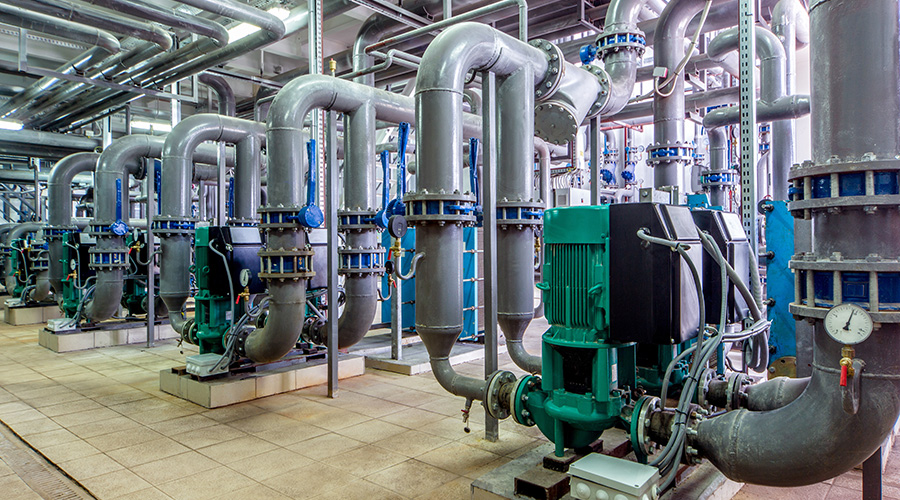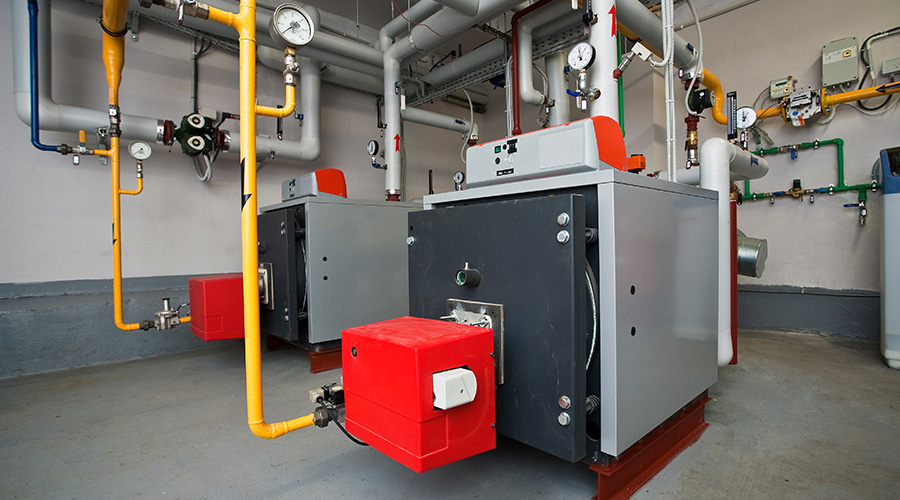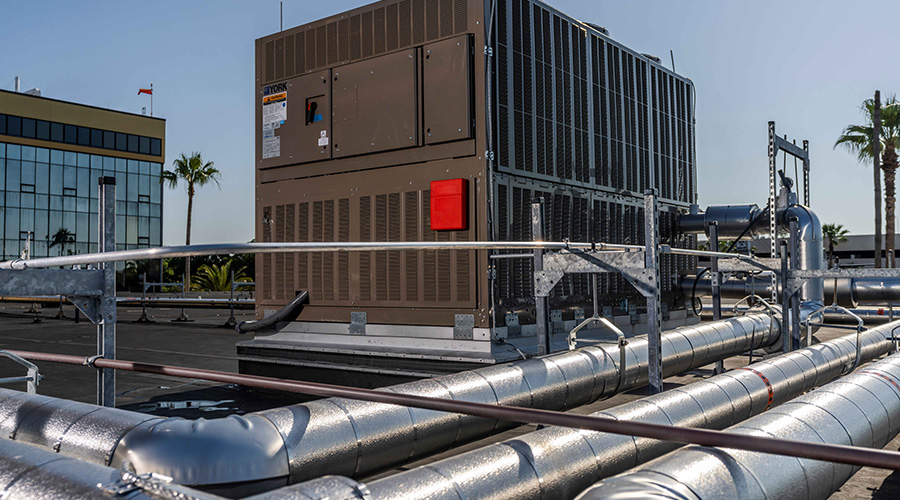HVAC: What’s in Store for 2024 – and Beyond
Industry leaders discuss energy efficiency and refrigerant change outs
Considering the costs involved in operating and maintaining HVAC systems as well as the need to keep requests from building occupants that the building is too cold or too warm to a minimum, HVAC systems will always receive plenty of attention from facility managers at institutional and commercial facilities.
Every winter, the HVAC industry gathers for the AHR Expo, where manufacturers and contractors meet to learn about the latest trends and products available for consumers. And for the last three years, leaders from some of the top organizations have gathered for a roundtable to discuss the state of the industry. This year’s conversation in Chicago featured industry leaders including:
Following the roundtable, Building Operating Management magazine reached out to the trio to get their thoughts on some of the issues affecting facility managers in the commercial and institutional market.
Building Operating Management: What is the most important HVAC priority for facility managers at institutional and commercial facilities as 2024 evolves?
Scoggins: The most important priority for facility managers regarding HVAC is to confirm their systems are operating correctly and using energy wisely. So many systems start performing poorly within five years of installation and need to be recommissioned to work properly and save energy.
Yurek: Preparing for the transition from HFCs to lower-GWP A2L refrigerants. As we move forward with the transition, facility managers should be especially vigilant about maintaining systems and fixing leaks as HFC supply fluctuations are likely to occur.
Walker: As 2024 evolves, the most crucial HVAC priority for managers is undoubtedly energy efficiency. With increasing emphasis on sustainability and cost savings, optimizing HVAC systems to operate at peak efficiency becomes paramount.
BOM: What are some of the more significant technological developments in HVAC systems that have affected facility managers in the last few years?
Yurek: I think the focus on energy efficiency has spawned technologies that use whole system approaches to squeeze every last bit of efficiency out of systems. Variable frequency drives, ECM motors readily come to mind, but there are others. In addition, the increased focus on indoor air quality as a result of the pandemic has put the spotlight on technologies such as humidification, increased ventilation, and filtration.
Walker: Over the past few years, facility managers have witnessed significant technological advancements in HVAC systems. Key developments include the integration of smart HVAC controls, advanced predictive maintenance capabilities leveraging AI and IoT, and the adoption of green HVAC technologies such as geothermal heating and cooling.
Scoggins: Control systems have come a long way in terms of integration with proprietary devices provided by equipment manufacturers as well as being more open-source than we have seen in previous years.
BOM: We’re hearing a lot about the refrigerant mandate that will soon impact the industry. How does this mandate affect facility managers and what do they need to know?
Walker: Refrigerant mandates are indeed a hot topic in the HVAC industry. Facility managers need to understand the implications of these mandates on their existing HVAC systems, including the phasing out of certain refrigerants and the transition to environmentally friendly alternatives. It’s essential for them to stay informed about compliance requirements and plan for necessary upgrades or retrofits accordingly.
Scoggins: The U.S. has delayed the refrigerant change out by one year at this point, but facility managers need to know that the new refrigerants are likely to be A2L refrigerants, which are slightly flammable. Their staff should be trained accordingly.
Yurek: Next-gen refrigerants have different characteristics and require proper training for equipment installation. Make sure that when it comes time to install equipment with these new refrigerants that installation and maintenance technicians have that training.
Related Topics:













